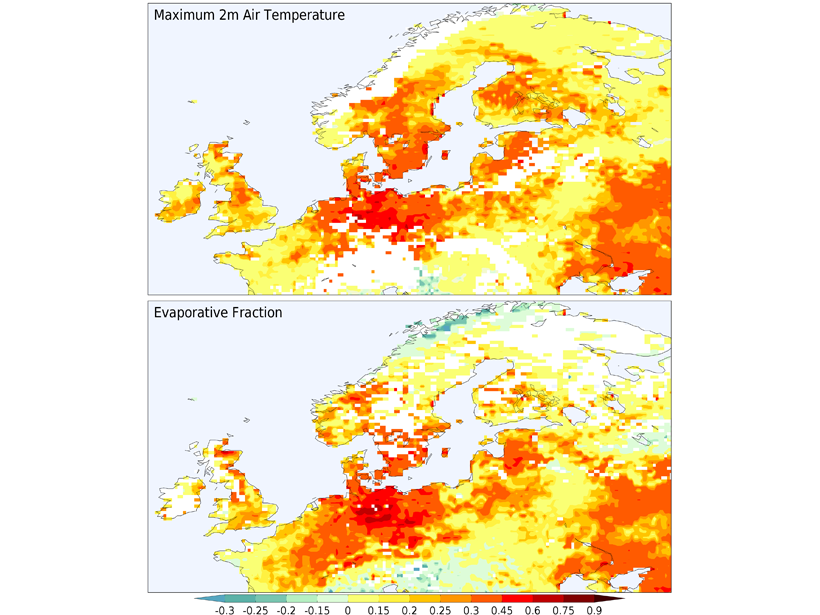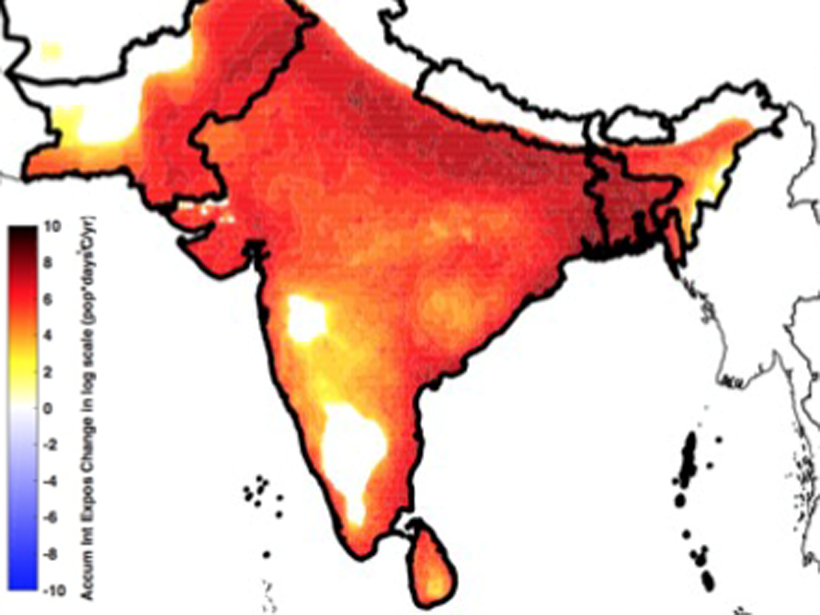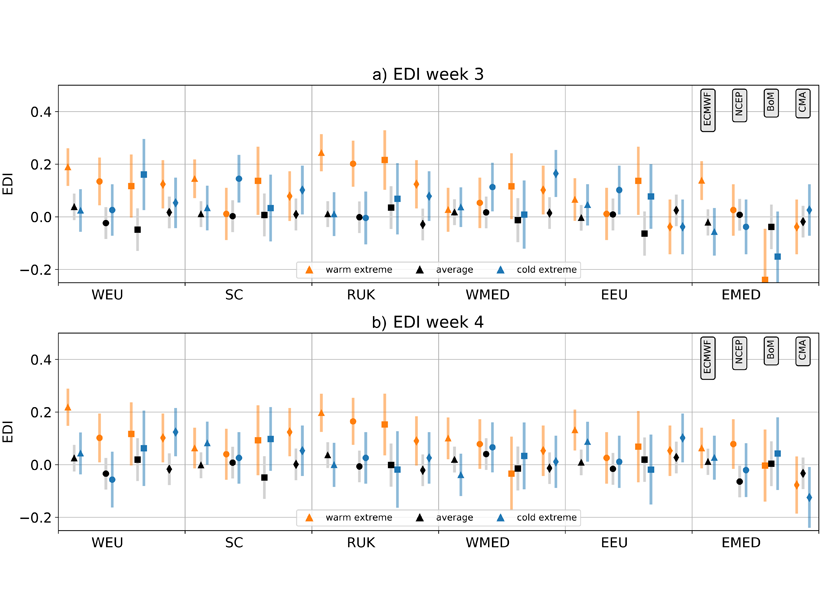A new study finds that the exceptional temperatures seen in Siberia in the first half of 2020 would have been extremely unlikely without anthropogenic climate change.
heat waves
Dry Soils Enhanced the 2018 Heatwave in Northern Europe
A range of observations show that a shift in land-atmosphere coupling exacerbated the hot drought experienced in Europe in 2018.
Tackling Challenges of a Drier, Hotter, More Fire-Prone Future
Research is increasingly showing how drought, heat, and wildfire influence each other. Ongoing collaborations provide templates for how best to study these phenomena and plan for their future impacts.
Simultaneous Drought and Heat Wave Events Are Becoming More Common
As the world heats up, the number and duration of combined stress events are increasing, causing harmful environmental and human impacts.
Coastal Brazil Is Likely to Face More Heat Waves and Droughts
In 2014, São Paulo experienced its greatest water crisis ever, caused by an intense drought. New research indicates that it is likely to happen again and be even more severe.
The First Undeniable Climate Change Deaths
In 2018 in Japan, more than 1,000 people died during an unprecedented heat wave. In 2019, scientists proved it would have been impossible without global warming.
Health Concerns from Combined Heat and Pollution in South Asia
Little research has studied the impacts of combined climate conditions. Together, heat events and poor air quality in South Asia amplify the imminent health challenge.
Another Scorcher: 2019 Was the Second-Hottest Year on Record
Heat waves, massive melts, and droughts, oh my. The past decade was our hottest yet.
Heat Waves Born of Earth and Sky
Researchers use computer simulations to uncover the significant contributions that dry soil and atmospheric wind patterns make to major heat waves.
Extreme Summer Heat over Europe Is Predictable Week-to-Week
Forecasts made one to a few weeks in advance, known as “subseasonal to seasonal” predictions, show more skill in predicting extreme summer heat waves over Europe than spells of normal or cold weather.










